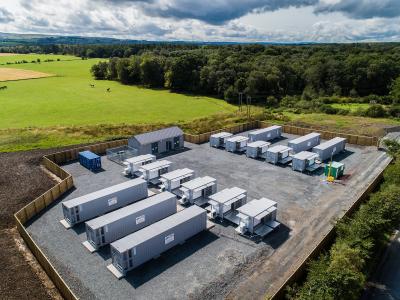Leistungen
Unsere leidenschaftlichen und erfahrenen Mitarbeiter realisieren weltweit erfolgreiche Projekte für saubere Energie.
Technologien
Wir fördern eine nachhaltige Energiezukunft mit erneuerbaren Technologien neuester Generation.
Erfahren Sie mehr über TechnologienRessourcen
Stöbern Sie in unseren neuesten Informationen. Sie finden hier Nachrichten zum Unternehmen, Kundenberichte, Brancheneinblicke und Forschungsberichte.
RessourcenKarriere
Unterstützen Sie unser Team aus passionierten Menschen, die gemeinsam eine nachhaltige, stimulierende und weltverändernde Arbeit leisten
Mehr erfahrenÜber uns
Wir leben unsere Mission, feiern die Menschen, die sie umsetzen und begrüßen den Wandel, der die Art und Weise verändert, wie die Welt Energie produziert und nutzt
Siehe über unsUnsere Büros
Wie unser Unternehmen sind wir wirklich global - aber mit Stolz lokal. Hier finden Sie Kontakt- und Standortinformationen für jede RES-Niederlassung.
Kontaktieren Sie uns-
Startseite
/
Resources
/
Blog
/
Unlocking flexibility in value

As wind and solar power generation increases, so too has the demand for flexible power generation. However, how do you best capture value in flexibility and power generation, whilst still reaping the scaled benefits?
As a technology agnostic company, RES can objectively look at how batteries fit into the mix, how they can enable a new model of grid and how their value will grow long-term.
Battery storage, with its rapid response times, already plays a huge part in reducing inertia on the grid. To put it another way, battery has become the first line of defence for our energy network; crucial to keeping the lights on until the grid can respond to a sudden change in the gap between demand and supply.
While there is only a limited volume of battery storage on the UK system at the moment, its true value is already starting to be recognised thanks in part to the speed it can respond at, making it many times more valuable to the grid than gas peakers, for example. And if part of a long-term approach to a more distributed model, batteries could help reduce volatility on the grid and provide far more stability for the market.
With a distributed model, storage can also reduce the need for large pylons and solve problems in countries with weaker grids, such as Germany and Austria.
More fundamentally, battery storage allows us to actually use more of the clean energy we generate through renewables. This not only helps bring down the cost of renewable energy, but means our grid has to spend less money on higher carbon forms of energy, leading to a cleaner, more sustainable future for us all.
So to assess the true value of batteries and flexibility, it is essential to look at the wider picture. Taken together, storage – through batteries, although hydrogen could come into the picture – enables greater use of clean energy, it unlocks extra value for renewables developers by enabling more power to be sold to the grid, it safeguards the National Grid by providing rapid response and it can help reduce infrastructure pressures by charging up during off-peak periods.
When put like that, it can be hard not to see the true value in energy storage.
